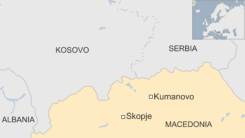 The weekend [9.-10. May 2015] violence in Macedonia (FYROM) [later in short only Macedonia] has sent a wave of anxiety across the Balkans raising concerns about presumed ethnic-Albanian unrest in the volatile region. Eight police officers were killed and 37 were injured in the gun battles, which began at dawn Saturday [9th May 2015], and also 14 gunmen were killed in the fighting. Earlier a police operation had been launched in the suburb of Divo Naselje to “uncover and break up an armed terrorist group” that had entered Kumanovo from “a neighboring country” with the aim of “attacking state institutions”. Police encountered heavy resistance from the “well trained” group that was using “automatic weapons, bombs and snipers”.
The weekend [9.-10. May 2015] violence in Macedonia (FYROM) [later in short only Macedonia] has sent a wave of anxiety across the Balkans raising concerns about presumed ethnic-Albanian unrest in the volatile region. Eight police officers were killed and 37 were injured in the gun battles, which began at dawn Saturday [9th May 2015], and also 14 gunmen were killed in the fighting. Earlier a police operation had been launched in the suburb of Divo Naselje to “uncover and break up an armed terrorist group” that had entered Kumanovo from “a neighboring country” with the aim of “attacking state institutions”. Police encountered heavy resistance from the “well trained” group that was using “automatic weapons, bombs and snipers”.
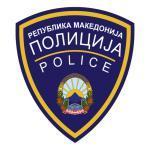
The arrested leaders of the terrorist group that mounted the attack in Kumanovo include former bodyguards of Kosovo Albanian politicians, Macedonian media report.The persons that surrendered to the Macedonian police after 16 hours of conflicts in Kumanovo include Muhamed Krasnići, the so-called commander Mališeva, Mirsad Ndrecaj, the so-called commander Nato, Sami Ukšini, the so-called commander of Sokoli, Beg Rizaj, the so-called commander Begu and Dene Šehu, the so-called commander Juniku, who took part in conflicts in Kosovo as a KLA member and also in the conflict in Macedonia in 2001. (Source: inNews )
Kumanovo is located next to the rural municipality of Lipkovo, where, on April 21, an unidentified armed group from nearby Kosovo had briefly stormed a border police. Besides in Macedonia the ripple effect seems greatest in Bosnia, which remains troubled by its own recent militant attack. Less than two weeks before violence erupted in Kumanovo, a radical Islamist attacked a police station in the eastern Bosnian town of Zvornik.
In a joint reaction on Sunday [10th May 2015] the OSCE, the EU, the U.S. and NATO said that they hoped the hostilities in Kumanovo would remain an isolated event. “It is… our understanding that the armed group in Kumanovo is an isolated phenomenon. We strongly believe that it must not be allowed to harm relations within society,” they said. (Source: BalkanInsight )
Sure it would be politically nice for Western Powers if terrorism in Macedonia is only an individual, isolated act; howver I’m afraid this not the whole picture.
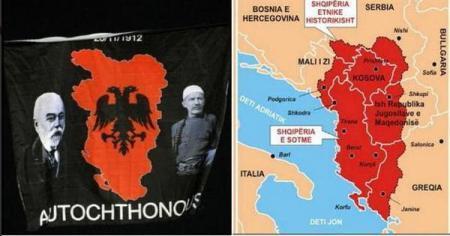
Perpetual struggle for «Great Albania»?
The recent statement by Albanian Prime Minister Edi Rama that the isolation of Kosovo in European integration could result in the classical unification of Albania and Kosovo has at the same time woken up the old ghosts of divisions and conflicts in the Balkans. Idea “Great Albania” , which is actively propagandized by nationalists in Albania and in Kosovo, assumes association of all territories in which ethnic Albanians live. The most part of this territory is in borders of present Albania, Kosovo, Macedonia, part of Serbia, Montenegro and Greece.
In neighboring Serbia the military security agency (VBA) chief says Serbian security services had warned their Macedonian colleagues in April about a possible “attack” there. “Albanian terrorists who carried out the attack in Kumanovo had been in that part of Macedonia for a while, but, our Macedonian colleagues believed that these stories were exaggerated,” said Petar Cvetkovic. Speaking in the wake of a two-day clash that claimed the lives of eight Macedonian police officers and 14 terrorists, Cvetkovic told the Belgrade-based Pink TV that members of the terrorist group came mostly from Kosovo, but that some of them were also from Macedonia, “and even in the south of central Serbia” – and that their common goal was to create “a Greater Albania.”
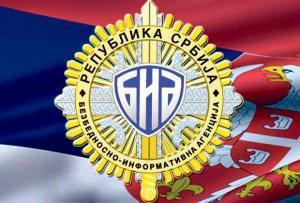
Views from Terrorist side
Albanian media quoted a statement of the so-called “National Liberation Army” (NLA), which claimed responsibility for the attacks, saying that the army and police carried out “terror against civilians” and announced even fiercer attacks on the security forces of Macedonia. “We will continue to attack the police and the army without mercy. We will fight to the end to unite territories with Albanian population. Today we are stronger, and tomorrow we will be even stronger. We are everywhere.” The National Liberation Army, also known as the Macedonian UÇK, is a militant organization closely associated with the Kosovo Liberation Army (KLA). (Source: inNews )
“The Guard of Republic Ilirida” (GRI) on Sunday informed the public, and, as they say, “all Albanian territories and the international community”, that today all Albanian groups and military units of NLA started to act as “one body” in establishing the “Republic of Ilirida”. “In addition to continuing struggle and reorganization of NLA and GRI, which is imposed as the only option for achieving the Republic of Ilirida, if the leadership of Macedonia, as a false creation, continues to be repressive with its state apparatus, we are ready to destroy, if necessary, not only Macedonia but also the whole Balkans, wherever Albanians live, because the international factor leaves us no other choice,” reads the statement signed by “Commander Hamdi Ndrecaj Panter”. (Source: inNews )
Macedonia’s two decades in short
Macedonia was spared the inter-ethnic violence that raged elsewhere in the Balkans following the break-up of Yugoslavia in the early 1990s but it came close to civil war a decade after independence. Rebels staged an uprising in early 2001, demanding greater rights for the ethnic Albanian minority. The conflict created a wave of refugees and the rebels made territorial gains. Acknowledgement of ethnic-Albanian rights was formalised in amendments to the constitution approved by parliament in late 2001. In return for the deal [the Ohrid Agreement], the insurgents disbanded and formed the ethnic Albanian Democratic Union for Integration, which now sits in government. Albanians account for about a quarter of the population.
In August 2004, parliament approved legislation redrawing local boundaries and giving ethnic Albanians greater local autonomy in areas where they predominate. Although Macedonia was confirmed as an EU candidate country in December 2005, however EU candidacy is frozen amid a dispute with Greece over use of the name Macedonia.

Some geopolitical aspects
[NATO] – “a big friend of our enemies.” (Macedonian government spokesman, Antonio Milososki, in 2001)
The rise of Albanian nationalist irredentism along the fragile Kosovo-Albanian border gave first signs with a recent attack on a Macedonian police border post at Gošince by 40 armed men wearing the insignia of the the National Liberation Army, NLA, a branch of outlawed Kosovo Liberation Army (KLA), and demanding the creation of an Albanian state within Macedonia. It is hard to believe that this act occurred without knowledge of U.S. intelligence based in Camp Bondsteel in same neighbourhood.
From geopolitical point of view the attack in Kumanovo and earlier [on April 21st 2015] attack to police station in the village of Gosince might not be isolated individual terrorist acts. There is reasonable doubt that these actions are part of the U.S. strategy to bury the Macedonian government of Prime Minister Nikola Gruevski with help of Social Democratic opposition leader Zoran Zaev, a U.S. favorite and ethnic uprising of Albanians. Amid daily anti-government protests and mounting pressure upon Gruevski to resign, some observers accused the authorities of trying to distract the public from the crisis by fabricating ethnic unrest. Zoran Zaev, said he suspected the government was behind Saturday’s violence in an attempt to deflect attention from the crisis.
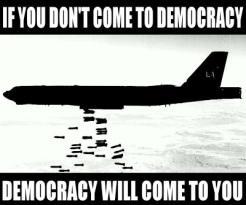
Besides political aspects there is economic ones too. While South Stream Pipeline project was replaced with Turk Stream and planning is going on to continue project with sc Balkan Stream some serious threats still remain that could endanger the viability of this new project. These mostly have to deal a reoccurrence of instability in Macedonia. And this happened now. The Turk Stream and the Balkan stream pipelines are not the only issues in geopolitical game in Macedonia but there is also the Chinese-funded Balkans railway part of the Silk Road project that will link the Greek port of Piraeus to Budapest through Macedonia and Serbia.
My point of view
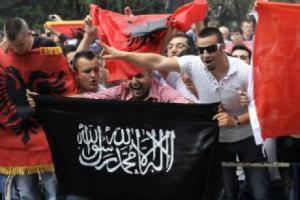
Already early -90s U.S. decided to alky with Croatian separatist Nazis due their effective lobby in Washington plus good hired PR-firms. Afterwards the Bosniaks (muslims in BiH) made the same and Serbs were demonized. After war the international community’s foreign aid for Bosnia has exceed USD 90 bn for artificial creature designed in Dayton agreement aiming multi-ethnic state with EU perspective. As a result Bosnia is now even more divided, with less national identity and with a nightmare triple administration. Instead of developing its “European perspective”, Bosnia-Herzegovina going backwards remaining an unwelcome, dysfunctional and divided country, with an aggrieved Bosniak (Muslim) plurality, a frustrated, increasingly defensive Serb entity, and an anxious, existentially threatened Croat population. ( More e.g. in Bosnia on the road to the EU, sorry to Dissolution )
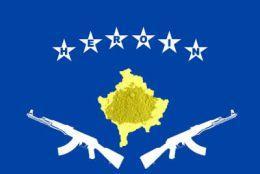
Generally speaking it seems that Albanians – or remarkable part of them -are incapable of living and co-existing with their neighbours – Greeks, Macedonians, Montenegrins and of course, Serbs. Albanians continue to cause trouble, even though they have all the rights that they asked for in Macedonia, through the Ohrid Agreement, and have also achieved a pseudo “independence” in Kosovo.
I would like to point out that now the West can not any more escape reality, facts can not be ignored any longer. EU in my opinion should start to distance itself from U.S. cowboy policy. Now many Europeans realize they were hoodwinked into recognizing Kosovo’s independence on the pretense it would resolve problems and bring peace – it didn’t happen; a new approach is needed. The events in Macedonia could be start for reassessment of U.S.policy in Balkans and operations/presence of international community there.
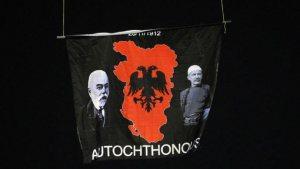
Trivia:
Great Albania – the name used for Albanian ethnic territories in the Western Balkans.
[The violence in Macedonia was] “a consequence of the unfinished process of the break-up of former Yugoslavia”. (Republika Srpska President Milorad Dodik)
An international survey data from the World Value Survey collected and processed by the Washington Post reveals that Albania is the most racist country in Europe. (Source Washington Post )
I continue to take heat for my support of the Serbs (Christians) in Clinton’s Bosnian misadventure. We were on the wrong side in that war and the consequences of Clinton’s perfidy continue to reverberate in that region. Albanian and Kosovo Muslims are openly attacking another country (Macedonia), creating another potential war zone in Europe. Bill Clinton sent American soldiers to fight alongside these “mujahedeen” against the Serb Christians in the Bosnia war. Most Americans still don’t know or understand the implications of America’s support of the jihad in Europe. (Pamela Geller)
A former speaker of Kosovan parliament believes Macedonia should be federalized between Albanian and Macedonian territorial units as the only way for country’s stability and guaranty of full respect of political rights of Ethnic Albanians in the inter-ethnic troubled country.
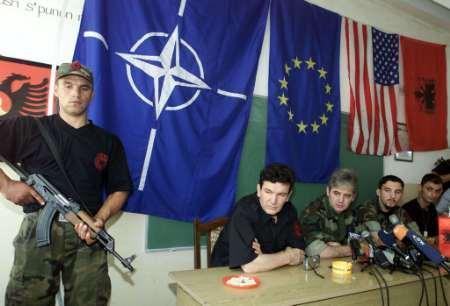
Ali Ahmeti (in camouflage top and graying hair, third from the left), speaks to journalists during a press conference from his headquarters west of Tetovo in Shipkovica on August 19, 2001. The choice of flags behind him—NATO, EU, US and Albanian—highlights his goal of integration into (or at least alliance with) the West. When asked why no Macedonian flag was on display, he first dismissed the importance of its omission as a mere oversight and predicted that it would be up “tomorrow” but later explained that the fighting was still too recent for such a gesture. Photo Credit: Reuters/Petr Josek

